AG says commitments not prioritized.
The Auditor General of Canada says the Yukon Government needs to do better on climate change. The report issued Tuesday mainly focused on the previous government’s climate change strategy. The report noted that “the Government of Yukon created a strategy, an action plan, and two progress reports to respond to climate change. In developing these items, the government took good first steps toward providing leadership and direction for responding to climate change. However, the commitments in the government’s action plan and progress reports were weak and not prioritized. In addition, deficiencies in the Climate Change Secretariat’s reporting made it difficult to assess progress on the government’s climate change actions.”
The departments of Energy, Mines and Resources, Environment and Community Services had produced information on climate change but had taken little concrete action. Auditor Casey Thomas says the departments “we looked at had not done enough to meet the government’s targets for reducing greenhouse gas emissions.” And that the departments “did not meet many of the government’s twelve targets for reducing greenhouse gas emissions, or they were unable to measure their progress against those targets.”
The audit says “the benefits of gathering information are fully realized only when the information is used to take action in a timely manner.” The report says the temperature in the territory rose three degrees Celsius in 2016, which is causing permafrost infrastructure issues, varying precipitation and extreme weather conditions. Climate change is having a devastating affect on the Yukon and its finances, as the report noted. “The Department of Highways and Public Works determined that the cost of rehabilitating permafrost sections of roads and highways was as much as 10 times the cost of rehabilitating non-permafrost sections.” Flooding and forests were also damaged.
While the report was a reflection on the Yukon Party, MLA Brad Cathers, (Lake Laberge) who was a Cabinet Minister for many years covering the audit focused, says its scope was too narrowed to just the climate change strategy and not linked to other reports such says the Energy Strategy or other climate programs, pointing to renewable energy.
Yet he did admit that the former government could have done a better job in “both quantifying, the actions and reporting on those actions.” Cathers did not want to dwell on the shortcomings while in government, instead focusing on what the Liberal government is going to do. “A more detailed plan about what actions they are planning on taking and the predicted effects. That's one of the areas the Auditor General identified as a gap in several areas related to this current audit, where government hadn't really quantified what the reduction would be on greenhouse gas emissions. The most notable and obvious example would be [regarding the] carbon tax plan. We still don't know the exact cost to Yukoners. We still don't have the details on what rebates might be provided. The government has not identified any predictions about predicted fossil fuel consumption.”
Environment Minister Pauline Frost (Vuntut Gwitch’in) was not available for an interview following the release of the report, opting to issue a statement. “The report presented four overarching recommendations, outlining that there are improvements to be made in Yukon’s approach to climate change. The government supports the recommendations, and work is underway to address them.” Frost adds. “As outlined in the report, a climate risk assessment contract is also underway. This information will support departments as they develop climate risk reduction plans, including implementation and monitoring plans.”
(Dan Jones Whitehorse Dec. 5, 2017)
More from CHON-FM Northern News
-
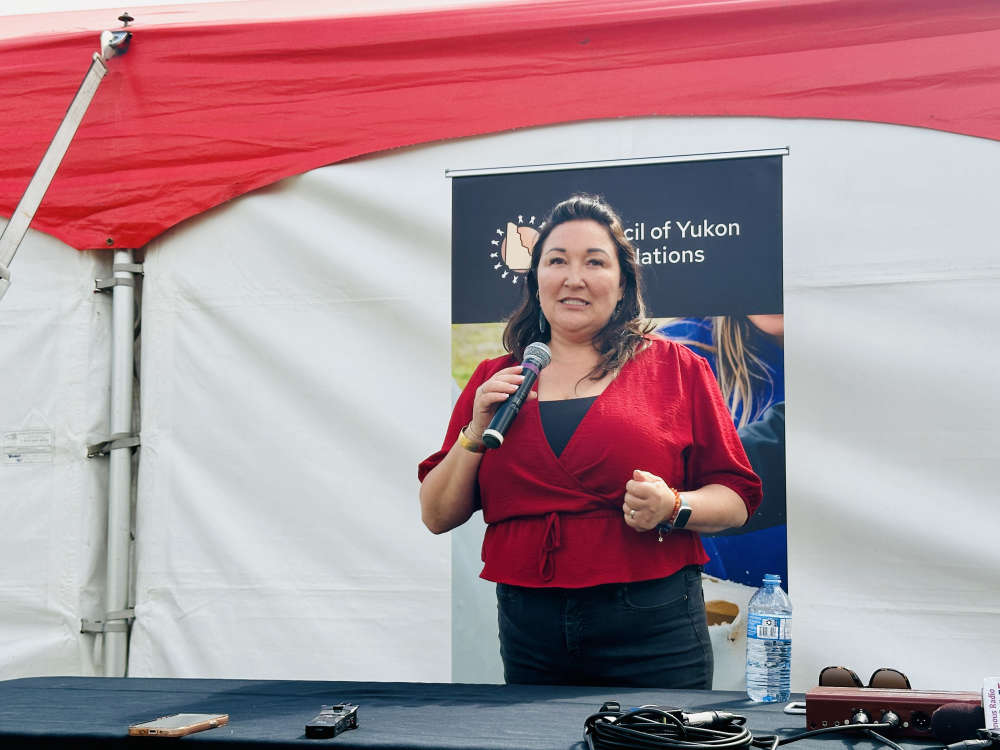 Math'ieya Alatini elected CYFN Grand Chief
Math'ieya Alatini elected CYFN Grand Chief
Former Kluane First Nation chief takes ever the role from Peter Johnston after 9 years.
-
 Watson Lake man charged in firearm robbery
Watson Lake man charged in firearm robbery
A search warrant executed on June 5, 2025, resulted in the seizure of ammunition, suspected controlled drugs, and cocaine.
-
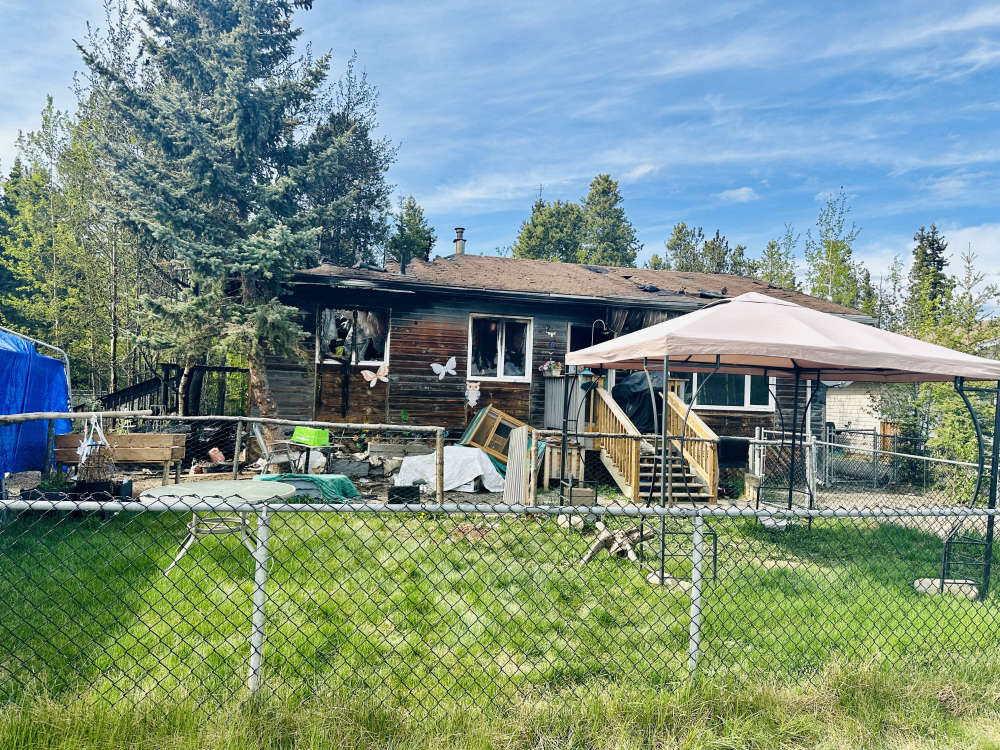 House fire in McIntyre contained
House fire in McIntyre contained
Several pets were caught in the house fire. While one cat was fortunate enough to be rescued and is receiving treatment from a veterinarian, sadly, others did not survive the blaze.
-
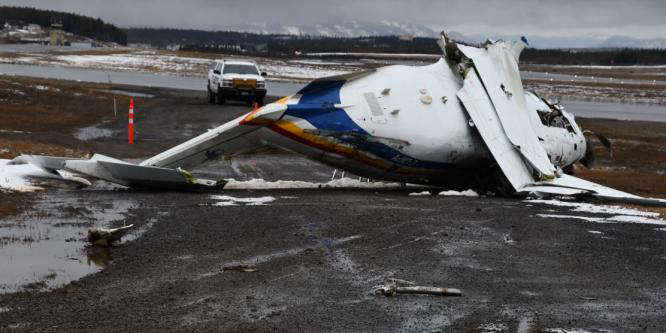 RCMP plane crash caused by faulty sensor: TSB report
RCMP plane crash caused by faulty sensor: TSB report
A faulty stall warning system sensor was the primary cause of the crash. The sensor failure triggered a false stall signal, activating the stick shaker and warning system.
-
 New Fireweed Mental Health unit opens at Whitehorse General Hospital
New Fireweed Mental Health unit opens at Whitehorse General Hospital
The Fireweed Mental Health Unit, named after the fireweed flower symbolizing resilience and recovery
-
 Traditional learning camp opens at Whitehorse school
Traditional learning camp opens at Whitehorse school
Porter Creek Secondary School students, staff, and community members celebrated the grand opening of Ǹtsǟw Chù Kets’edän Kų̀ on Wednesday.
-
 Yukon Schools introduce online registration for bus service
Yukon Schools introduce online registration for bus service
To be eligible for school bus service, students must live more than 3.2 kilometres from their school and attend their attendance area school.
-
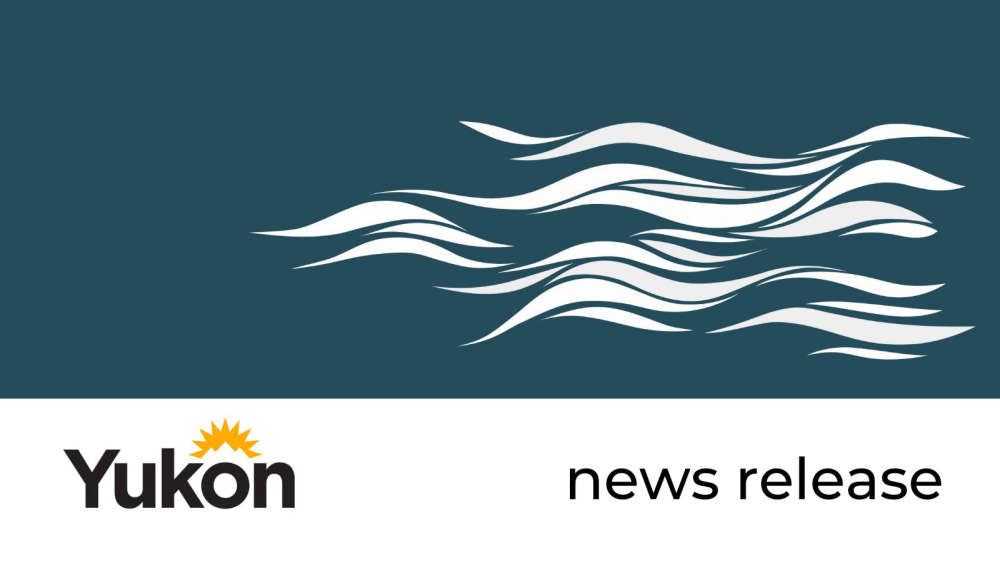 Yukon Government unveils progress in healthcare transformation with 2024 Putting People First annual report
Yukon Government unveils progress in healthcare transformation with 2024 Putting People First annual report
The report highlights key achievements, including the successful launch of the Whitehorse Walk-in Clinic at Mah's Point.
-
 Whitehorse Emergency Shelter unveils New Artwork celebrating Yukon First Nations culture
Whitehorse Emergency Shelter unveils New Artwork celebrating Yukon First Nations culture
Gatensby drew inspiration from a poignant conversation about cultural division, and the piece features contributions from Grade 5 students from Whitehorse Elementary School.
-
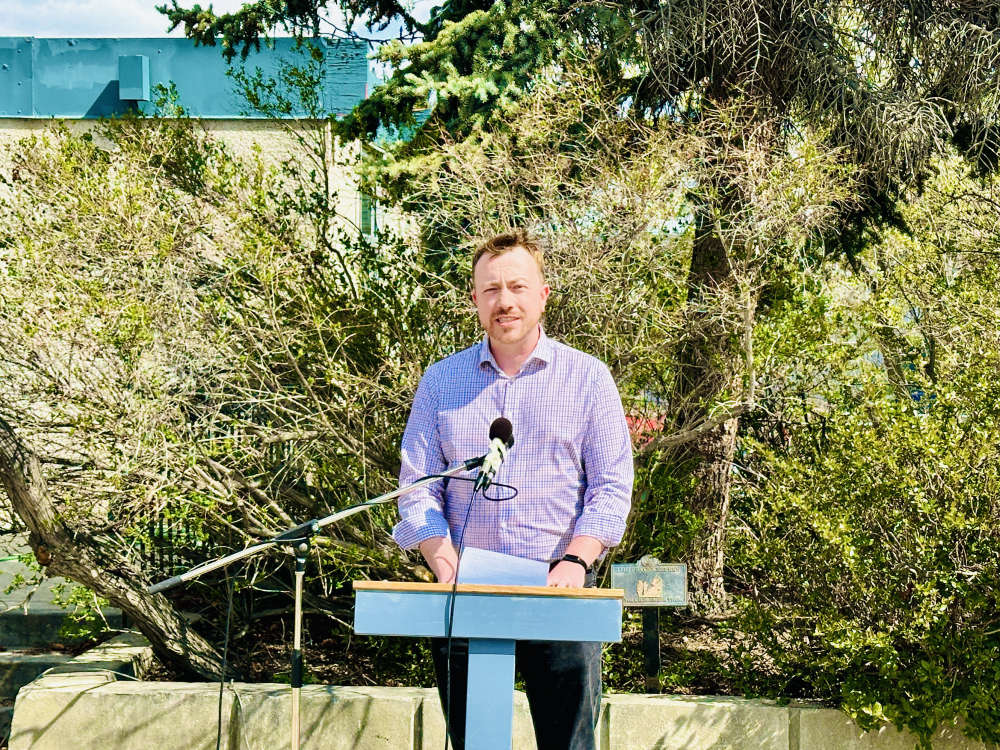 Former Whitehorse City Councillor Ted Laking announces bid for Yukon Party nomination in Porter Creek Centre
Former Whitehorse City Councillor Ted Laking announces bid for Yukon Party nomination in Porter Creek Centre
Ted Laking emphasized his collaborative approach to governance, stating, "I'm committed to working together with others."
-
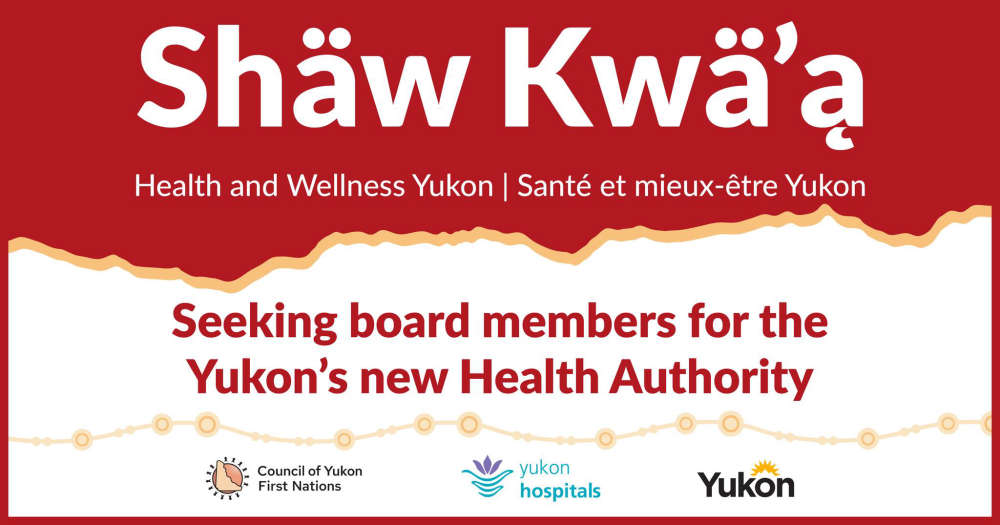 Yukon Government seeks applicants for new Health Authority Board
Yukon Government seeks applicants for new Health Authority Board
The initial board will play a critical role in overseeing the transition of health care services and implementing foundational agreements between the Health Authority and its partners.
-
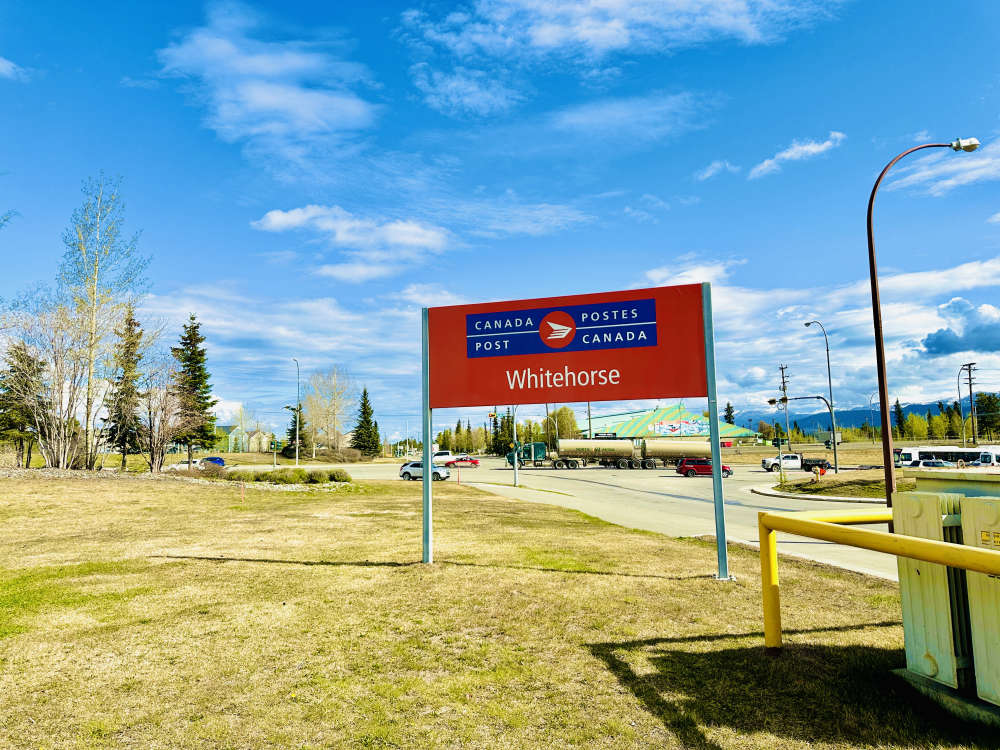 Canada Post strike looms, Yukoners brace for disruption
Canada Post strike looms, Yukoners brace for disruption
This would be the second strike in six months, following a 32-day work stoppage last November and December that caused significant disruptions to essential services.
-
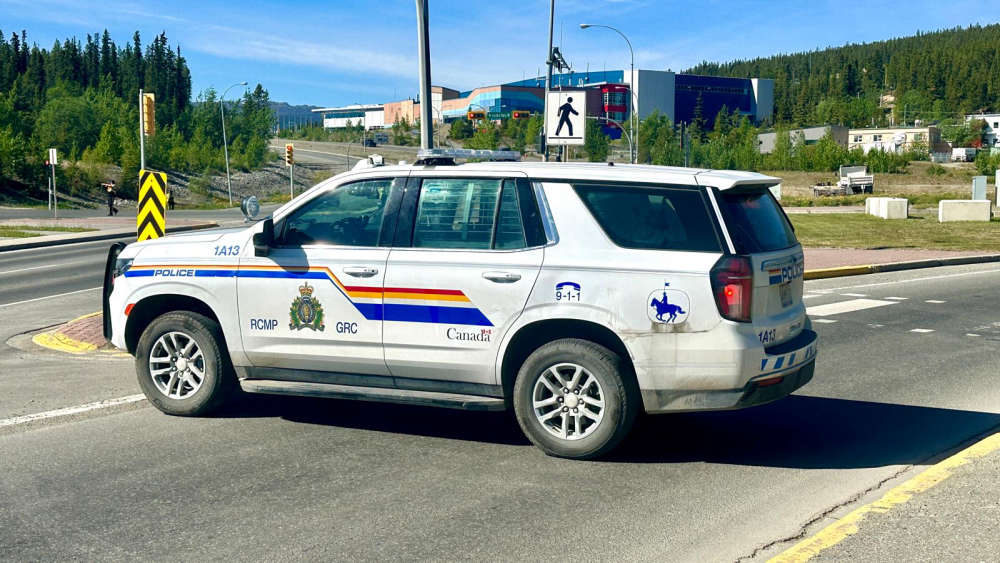 Driver charged in fatal collision that killed Yukon Government Deputy Minister and injured Minister
Driver charged in fatal collision that killed Yukon Government Deputy Minister and injured Minister
Smallwood faces two counts of Criminal Code dangerous driving offences and two counts of Territorial Motor Vehicle Act charges.
-
 Yukoners encouraged to apply for Northwestel's Northern Futures Scholarship Program
Yukoners encouraged to apply for Northwestel's Northern Futures Scholarship Program
Since its inception in 2002, the program has awarded over $500,000, helping students in the North.
-
 City of Whitehorse summer transportation maintenance work underway
City of Whitehorse summer transportation maintenance work underway
Motorists are urged to reduce speed, exercise caution, and follow signage in work zones to ensure the safety of both crews and road users.
-
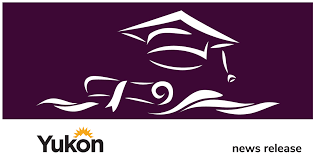 Yukon Government seeks input on new downtown public school
Yukon Government seeks input on new downtown public school
The survey will collect input on topics such as location preferences, educational resources, and facility needs.
-
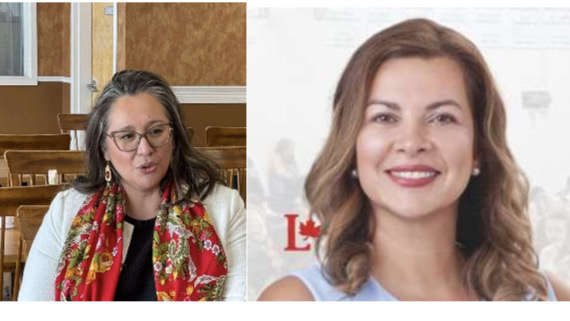 Indigenous leadership takes centre stage: Rebecca Chartrand and Mandy Gull-Masty appointed to key cabinet roles
Indigenous leadership takes centre stage: Rebecca Chartrand and Mandy Gull-Masty appointed to key cabinet roles
The AFN Yukon Region emphasized the need for ongoing collaboration between the federal government and Indigenous communities.
-
 Whitehorse prepares for Annual 20-Minute makeover
Whitehorse prepares for Annual 20-Minute makeover
Residents and businesses are encouraged to join forces and take 20 minutes to clean up their surroundings, whether it's around their workplace, park, or green space.
-
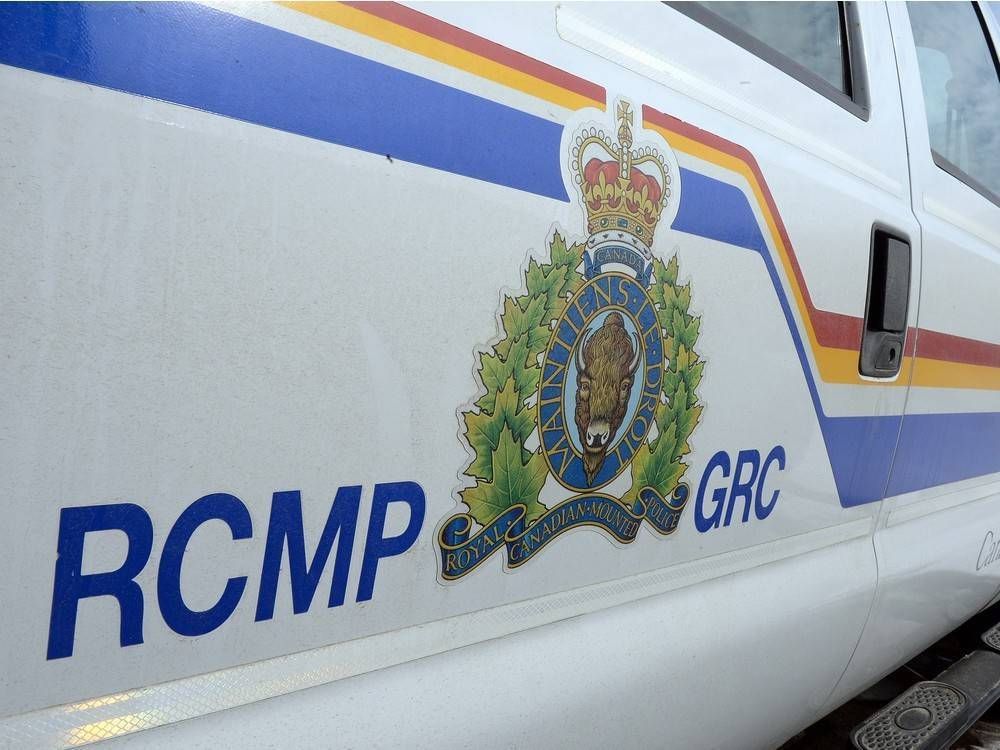 RCMP conducting training exercises on Schwatka Lake
RCMP conducting training exercises on Schwatka Lake
To ensure public safety, we are advising residents to avoid the area on Schwatka Lake for the duration of the two-day training exercise.
-
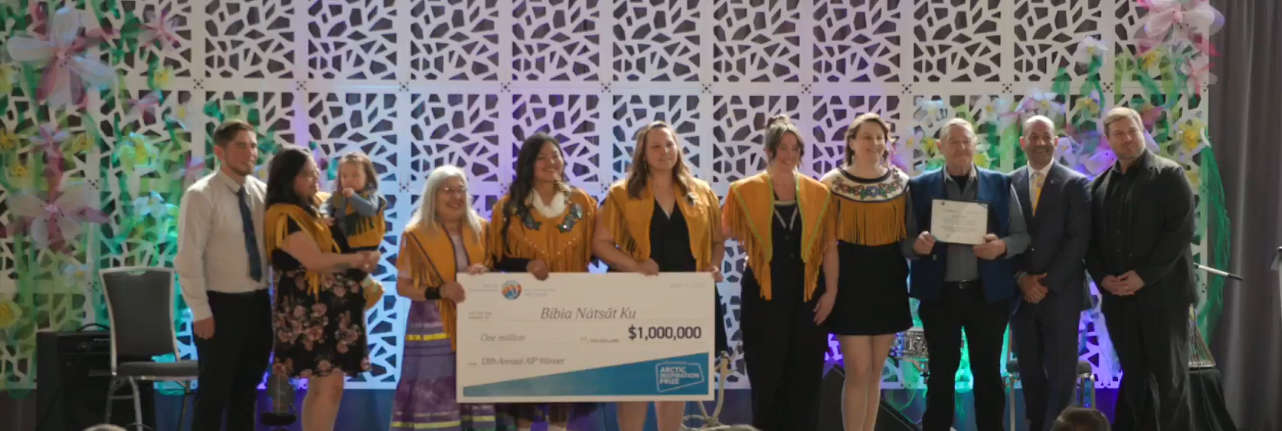 CYFN makes history as winner of prestigious Arctic Inspiration Prize
CYFN makes history as winner of prestigious Arctic Inspiration Prize
This prize will help in the purchasing of a space to dedicate a culturally save place for our families.



 Math'ieya Alatini elected CYFN Grand Chief
Math'ieya Alatini elected CYFN Grand Chief
 Watson Lake man charged in firearm robbery
Watson Lake man charged in firearm robbery
 House fire in McIntyre contained
House fire in McIntyre contained
 RCMP plane crash caused by faulty sensor: TSB report
RCMP plane crash caused by faulty sensor: TSB report
 New Fireweed Mental Health unit opens at Whitehorse General Hospital
New Fireweed Mental Health unit opens at Whitehorse General Hospital
 Traditional learning camp opens at Whitehorse school
Traditional learning camp opens at Whitehorse school
 Yukon Schools introduce online registration for bus service
Yukon Schools introduce online registration for bus service
 Yukon Government unveils progress in healthcare transformation with 2024 Putting People First annual report
Yukon Government unveils progress in healthcare transformation with 2024 Putting People First annual report
 Whitehorse Emergency Shelter unveils New Artwork celebrating Yukon First Nations culture
Whitehorse Emergency Shelter unveils New Artwork celebrating Yukon First Nations culture
 Former Whitehorse City Councillor Ted Laking announces bid for Yukon Party nomination in Porter Creek Centre
Former Whitehorse City Councillor Ted Laking announces bid for Yukon Party nomination in Porter Creek Centre
 Yukon Government seeks applicants for new Health Authority Board
Yukon Government seeks applicants for new Health Authority Board
 Canada Post strike looms, Yukoners brace for disruption
Canada Post strike looms, Yukoners brace for disruption
 Driver charged in fatal collision that killed Yukon Government Deputy Minister and injured Minister
Driver charged in fatal collision that killed Yukon Government Deputy Minister and injured Minister
 Yukoners encouraged to apply for Northwestel's Northern Futures Scholarship Program
Yukoners encouraged to apply for Northwestel's Northern Futures Scholarship Program
 City of Whitehorse summer transportation maintenance work underway
City of Whitehorse summer transportation maintenance work underway
 Yukon Government seeks input on new downtown public school
Yukon Government seeks input on new downtown public school
 Indigenous leadership takes centre stage: Rebecca Chartrand and Mandy Gull-Masty appointed to key cabinet roles
Indigenous leadership takes centre stage: Rebecca Chartrand and Mandy Gull-Masty appointed to key cabinet roles
 Whitehorse prepares for Annual 20-Minute makeover
Whitehorse prepares for Annual 20-Minute makeover
 RCMP conducting training exercises on Schwatka Lake
RCMP conducting training exercises on Schwatka Lake
 CYFN makes history as winner of prestigious Arctic Inspiration Prize
CYFN makes history as winner of prestigious Arctic Inspiration Prize